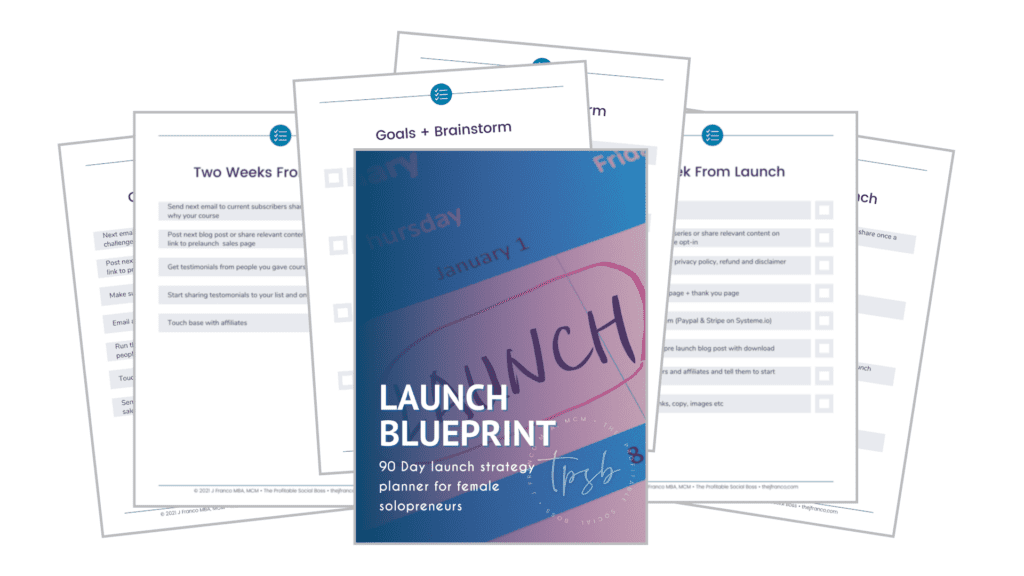Your online course topic is the subject or area of study your students will be learning about during your online course. It is important to choose a topic that interests you and that you feel passionate about. Doing so will help keep you motivated throughout your online course.
There are many ways to find your online course topic. This article will help you choose your online course topic
9 Ways to choose your online course topic
1. Brainstorm what you’re passionate about
The best way to find your online course topic is by brainstorming what you’re passionate about. What are some things you love talking about? What are some topics that interest you? Make sure it’s something you’re excited to teach, and that there’s a demand for online courses on that topic.
Once you have a list of potential topics, start doing some research online. See what other people are teaching online courses on similar topics. This will give you an idea of the competition, as well as what people are interested in learning about.

2. Find out what other people are teaching online and see if there’s a gap in the market
Once you have a list of potential topics, start doing some research online. See what other people are teaching online courses on similar topics. This will give you an idea of the competition, as well as what people are interested in learning about. Create a gap by providing unique online course content for your online course topic.
You don’t want to create the same online courses online that are already being taught elsewhere! Make sure you’re covering unique content that hasn’t been covered elsewhere.
3. Examine other existing content
A great way to do this is to examine your competitors’ material and see what parts can be left out. If you’re planning on teaching online courses to beginners, try omitting topics that are mostly covered by your competitors and make a list of topics that are not covered and necessary for beginners.
4. Investigate online marketplaces
Once you’ve made your online course topic list, it’s time to look into online marketplaces to find your niche. One of the best places to start is Udemy or Coursera, where you can create online courses and sell them online via their website. Other websites like Teachable also work well if you want to take a different approach with online courses – either way, just make sure there are people actively looking for online courses on your topic!
If the online marketplaces have little or no courses on your chosen topic, it might be worth creating one! However, if there are too many courses on your chosen topic, it might be better to broaden the scope of your online course and make it more niche. This will help you to stand out from the competition.
5. Define your niche
Decide on a niche for yourself, such as cooking vegan keto, finance for single parents, or social media marketing for female coaches. Once you’ve defined your niche, it’ll be much easier to create online courses that people are actually interested in taking.
When looking for online courses to take, people like to know what the course is about before signing up. By having a specific online course topic, you can target a particular audience and make sure that they know what the course is about before hitting the enroll button.
Creating an online course can be a lot of work, but it’s definitely worth it if you have something valuable to share! If you’re passionate about the topic, it will show in your online course content – and this is what will keep students coming back for more.
6. Narrow down your topic
Narrow down your list of ideas to one or two topics that you find the most interesting and focus on those. If you try to do too much, you’ll spread yourself too thin and the quality of your online course content will suffer.
One way to focus your online course topic is by figuring out what type, of course, you want to create – do you want video tutorials, audio lessons, text-based articles? Or a mix of all three?
Once you’ve determined the format of your online course, it’ll be much easier to start creating content. For example, if you decide to create video tutorials, you can start outlining the topics that you want to cover in each lesson.
Remember – keep it simple! You don’t want to overwhelm your students with too much information at once. Start with one or two
Create some sample content so people can get an idea of how it will look and feel when finished.
7. Think about what you want to cover
Before creating online courses, it’s important to have a general idea of what you want to teach. If you don’t have an outline, it’ll be difficult to create online courses that are both high quality and engaging.
It’s also helpful to determine the level of your online course. Are you targeting complete beginners or people who already have some knowledge about the topic? This will help you to focus your online course content and make sure that it’s appropriate for the students who will be taking it.
8. Research your topic
Now is the time to do some in-depth research on your chosen online course topic. Make a list of questions that you want to be answered and look for credible sources online to back up your online course.
One of the best ways to find credible sources is by looking at online reviews from students who have already taken similar online courses, as they can give you a better idea of what type of online course you should create.
Creating online courses is a great way for solopreneurs and creators to share their knowledge with others.
9. Your topic will help you come up with a name for your course
When you’re creating online courses, it’s important to come up with a catchy name that will attract students. This is where your online course topic comes in handy. By naming your online course after the topic, potential students will know right away what the course is about.
If you’re struggling to come up with a name for your online course, consider using a pun or play on words. For example, “The Art of Being Single” could become “The Art of Being Single For Thirsty Gals.”
Identifying your course topic and creating online courses that people actually want to take is the first step towards finding success in online course creation. By having a specific online course topic, you can target a particular audience and make sure that they know what the course is about before signing up.
Narrowing down your online course topic may seem like it’s limiting the amount of content you’re able to create, but this isn’t true – if anything, it’ll help you with creating engaging online courses since you’ll be truly inspired by your online course topic.
By choosing an online course topic and doing some research on it ahead of time, not only will it save you time when making online courses but it will create more interested students!

